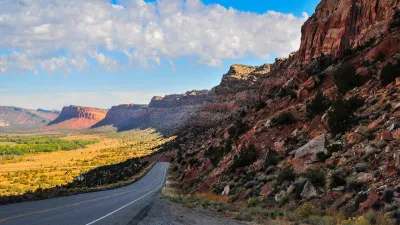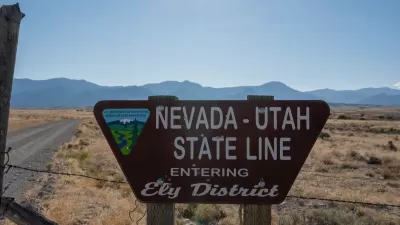Some states and industry groups have sued to stop the Bureau of Land Management from enforcing the new rule, which promotes the conservation and restoration of public lands and shifts focus away from extractive uses.

A coalition of tribal, community, and environmental groups filed a motion to help preserve the federal Bureau of Land Management’s public lands rule after the rule was challenged by states and industry groups reluctant to give up extraction rights on federal lands in several lawsuits.
Today, roughly 90 percent of BLM lands are open to oil and gas leasing. The public lands rule, passed earlier this year, elevates conservation to the same priority as other uses. According to an article from WildEarth Guardians, “The rule upholds the Bureau’s mission to manage public lands for conservation as both the trustee of federal public lands for the benefit of the American people and the regulator of federal public lands uses, according to WELC experts, eight state attorneys general, and 27 law professors. Valid existing rights to graze, mine, and drill will not be affected by the rule’s core provisions.”
Conservation mechanisms and tools included in the rule include “increased Area of Critical Environmental Concern designation, identifying and preserving intact landscapes, instituting widespread land health standards, undertaking restoration planning, and creating a new leasing program focused on restoration and mitigation.”
FULL STORY: Third legal intervention filed to defend federal public lands conservation rule from lawsuits

Study: Maui’s Plan to Convert Vacation Rentals to Long-Term Housing Could Cause Nearly $1 Billion Economic Loss
The plan would reduce visitor accommodation by 25,% resulting in 1,900 jobs lost.

North Texas Transit Leaders Tout Benefits of TOD for Growing Region
At a summit focused on transit-oriented development, policymakers discussed how North Texas’ expanded light rail system can serve as a tool for economic growth.

Why Should We Subsidize Public Transportation?
Many public transit agencies face financial stress due to rising costs, declining fare revenue, and declining subsidies. Transit advocates must provide a strong business case for increasing public transit funding.

How Community Science Connects People, Parks, and Biodiversity
Community science engages people of all backgrounds in documenting local biodiversity, strengthening connections to nature, and contributing to global efforts like the City Nature Challenge to build a more inclusive and resilient future.

Alabama: Trump Terminates Settlements for Black Communities Harmed By Raw Sewage
Trump deemed the landmark civil rights agreement “illegal DEI and environmental justice policy.”

Dear Tesla Driver: “It’s not You, It’s Him.”
Amidst a booming bumper sticker industry, one writer offers solace to those asking, “Does this car make me look fascist?”
Urban Design for Planners 1: Software Tools
This six-course series explores essential urban design concepts using open source software and equips planners with the tools they need to participate fully in the urban design process.
Planning for Universal Design
Learn the tools for implementing Universal Design in planning regulations.
City of Santa Clarita
Ascent Environmental
Institute for Housing and Urban Development Studies (IHS)
City of Grandview
Harvard GSD Executive Education
Toledo-Lucas County Plan Commissions
Salt Lake City
NYU Wagner Graduate School of Public Service





























